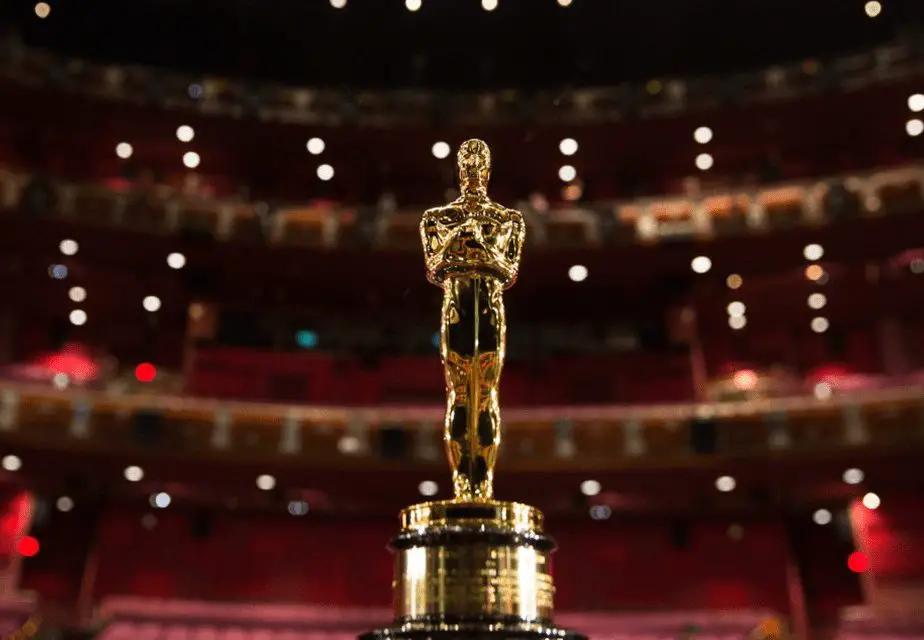The annual Academy Awards is arguably the most prestigious cinema-related ceremony in existence. Equally criticized and lionized, the Oscars, for many, have the last word in the realm of cinematic quality, especially in the best picture category.
In past years, the scope of the nominees within the best picture category, where genre is concerned, has been primarily limited to performance-centered dramas. While exceptions have occurred — the sci-fi blockbusters “District 9” and “Gravity” in, respectively, 2010 and 2014, along with the artistic action flick “Mad Max: Fury Road” in 2016, stand as the most distinctive examples — those who view the majority of films released over the year are often able to correctly predict the films which will be deemed worthy of the best picture nomination come awards season.
Apart from two anomalies — the timely, controversial horror film “Get Out” and the interspecies-romance fantasy movie “The Shape of Water” — 2017 is no exception to the typical bias of the Oscars. Still, overall 2017 was a phenomenal year for cinema, marked by the release of both quality franchise sequels and progressive original properties.
The following five films received both critical praise and audience acclaim, and ostensibly, qualify for the best picture nomination. Despite their lack of attention from the Academy Awards, their outstanding quality remains intact, and without a doubt these films are worth your time.
1. “Good Time”
Set in the heart of New York City, the plot of “Good Time” is simple. After his mentally-handicapped brother is arrested following a failed bank robbery, Connie Nikas — played by Robert Pattinson — sets out to scrounge together enough money to bail him out.
Frenetic, innovative and outright oddball, the movie is an instant cult classic. The plot is far from original, but the direction helmed by The Safdie Brothers, known for smaller indie successes “Daddy Longlegs” and “Heaven Knows What,” makes this crime movie an instant cult classic.
With Robert Pattinson’s portrayal of an unstable, unpredictable criminal, “Good Time” exudes danger and tension in every scene. The blistering pace and meticulous editing of the film mirror the ferocity of the events portrayed, and the twists in the story are both organic and bizarre. The score, made by the electronic musician Oneohtrix Point Never, only adds to the mood of danger and the grimy, surrealist atmosphere of the film.
Colorful, chaotic and creative, “Good Time” is an underrated, overlooked gem.
2.“Blade Runner 2049”
The original “Blade Runner” film, made in 1982, was one the most influential, well-regarded films in the genre. When it was announced that a sequel was being made, many fans of the first movie braced themselves for a disaster.
And yet, “Blade Runner 2049” is science fiction at its finest: unrepentant in its artistry and filled with epic spectacles. The sequel to the classic is a quiet, thought-provoking and insightful film which is respectful to the source material, while also expanding on its ideas and progressing the story of the 1982 original. In addition, “Blade Runner 2049” is debatably the most visually beautiful films of the year, due to the cinematography of Roger Deakins.
Denis Villenueve, the director of “Arrival,” “Prisoners” and “Sicario,” continues to prove himself as a modern auteur, while Ryan Gosling’s performance as the replicant hunter K is a testament to his seemingly endless potential. “Blade Runner 2049” is mainstream filmmaking at its absolute finest.
3.“Detroit”
“Detroit” is an unsparing account of the racial injustice of America in the 1960’s, which leaves the viewer with a sense of disgust and disappointment as the film explicitly portrays a nightmarish time in our nation’s history.
Centered around the 1967 Detroit riots, the movie is uncomfortable and challenging to watch in the best way possible. With the faultless direction of Kathryn Bigelow, the director of “Hurt Locker” and “Zero Dark Thirty,” the movie takes on a tone more akin to a thriller — or even a horror film at some points — than a 1960’s period piece. The terror portrayed in the 143-minute runtime is near-tangible, and the performances of Will Poulter, John Boyega and Algee Smith, to name a few, create an unbearably genuine sense of reality and tension.
While the third act does falter a bit, “Detroit” remains a painful reminder of an era in American history which some are too eager to forget.
4.“All the Money in the World”
The overarching sentiment of “All the Money in the World” can be found within one of the opening quotes, spoken by 16-year-old John Paul Getty III:
To be a Getty is an extraordinary thing. My grandfather wasn’t just the richest man in the world, he was the richest man in the history of the world. We look like you. But, we’re not like you. It’s like we’re from another planet. Where the force of gravity is so strong, it bends the light; it bends people, too.
2017 wasn’t only a great year for cinema; it was a great year for Ridley Scott. In addition to the criminally underrated “Alien: Covenant,” Scott released “All the Money in the World,” a film depicting the kidnapping and subsequent attempts at rescuing John Paul Getty III, a member of the infamous Getty family.
Unfortunately, the film soon found itself within the midst of its own personal crisis after Kevin Spacey, who portrayed J. Paul Getty, was accused sexual assault and harassment. Mired in the controversy, Scott removed Spacey’s performance entirely, then replaced him with Christopher Plummer and conducted reshoots of the film which were expected to exceed $10 million.
Fortunately for Scott, the result was an atmospheric, enrapturing crime-drama with some of the finest performances in 2017, courtesy of Michelle Williams and Plummer. “All the Money in the World” never compromises character for genre clichés, providing the film with a credibility that few others in the field can reach. Slow-paced without being dull, and thrilling without faltering into incompetency, “All the Money in the World” earns its acclaim based on merit alone.
5.“Wind River”
Cold, brutal and haunting are all appropriate descriptions for the directorial debut from prolific screenwriter Taylor Sheridan. Sheridan’s scripts, including those of “Sicario” and “Hell or High Water” are marked by bare-bones storytelling and unforgiving violence, and “Wind River” is no different.
Jeremy Renner plays Cory Lambert, a tracker assigned to investigate the murder of a Native American woman on a reservation. Along with FBI agent Jane Banner, portrayed by Elizabeth Olsen, Lambert soon uncovers a grotesque and unremittingly evil secret behind the young woman’s death.
A western set in modern times, “Wind River” possesses a subtle, distinct complexity to its characters. The manner in which the story evolves is deceivingly simple, initially seeming like just another standard police procedural. However, as the mystery unfolds, the intelligence, prowess and aptitude of both the director and actors follow suit, providing for a memorable, emotionally riveting experience.
Honorable Mentions
A list of this nature would be incomplete without honorable mentions. While the films listed above supposedly fit the characteristic mold of Oscar-worthy material, there were many other deserving films, which also fell prey to the bias toward performance-driven dramas in the Academy Awards.
Included on the list were “War for the Planet of the Apes,” Matt Reeves’s conclusion to the critically revered “Planet of the Apes” prequel trilogy, and the depressive, ultraviolent “X-Men” film “Logan.”
In addition, there were also Darren Aronofsky’s nausea-inducing theological fever dream “Mother!” and Sean Baker’s “The Florida Project,” a raw, unflinching and oftentimes adorable depiction of childhood and poverty through the eyes of actual child actors.
Will 2018 exceed the cinematic quality of its predecessor? It seems unlikely seeing as how 2017’s new movies certainly set the bar high. But who knows?

















